Similar presentations:
Prezentacja wielkanoc
1.
EASTER IN POLAND2.
CARNIVAL →KARNAWAŁ→ FAT THURSDAY → TŁUSTY CZWARTEK
→ OSTATKI
→ ASH WEDNESDAY → ŚRODA POPIELCOWA
→ 40 DAY LENT →POST
→ PALM SUNDAY → NIEDZIELA PALMOWA
→ HOLY WEEK → WIELKI TYDZIEŃ
→ EASTER → WIELKANOC
3.
HOLY WEEK (PRECEDED BY 40 DAYS OF LENT)PALM SUNDAY (NIEDZIELA PALMOWA)
HOLY MONDAY (WIELKI PONIEDZIAŁEK)
HOLY TUESDAY (WIELKI WTOREK)
HOLY WEDNESDAY (WIELKA ŚRODA)
HOLY THURSDAY (WIELKI CZWARTEK)
GOOD FRIDAY (WIELKI PIĄTEK)
HOLY SATURDAY (WIELKA SOBOTA)
EASTER DAY (NIEDZIELA WIELKANOCNA)
+ EASTER MONDAY (PONIEDZIAŁEK WIELKANOCNY:
LANY PONIEDZIAŁEK / ŚMIGUS DYNGUS)
4.
Holy Week begins with Palm Sunday.Prior to this day, people buy (or make) colourful palms
that they bring to the church so that the priest can
consecrate them.
The palms are usually made of hay, paper, flowers and
ribbons.
The palms are later on kept home and used as a
decoration for Easter. Then they are brought to church,
burned and the ash is used next year during Ash
Wednesday.
5.
PALM SUNDAY(NIEDZIELA
PALMOWA)
6.
7.
8.
9.
There are many regional traditions related tomaking palms and celebrating Palm Sunday.
10.
EATING WILLOW CATKINSŚLĄSK
(SILESIA REGION)
11.
In Silesia, people eat catkins in order to ensuregood luck for next year and to make sure that the
harvest is good.
It used to be more popular in the past, now not so
much.
12.
13.
HIGHLANDERS’ PALMSMOUNTAIN
REGIONS
PODHALE
14.
In some mountain regions in Poland, the palmsare not small, light and delicate.
On the contrary, górale (highlanders) build palms
by decorating tree trunks.
Each year, there are traditional competitions for
the tallest palm.
15.
16.
17.
18.
PALMY KURPIOWSKIE - KURPIE PALMSKURPIOWSZCZYZNA
REJON KURPIOWSKI
(KURPIE REGION)
19.
The small region of Kurpie in Poland is known forits unusual and rich traditions.
They organize competitions for the most beutiful
palms.
Their palms are mostly made of colourful tissuepaper.
20.
21.
22.
23.
„PUCHEROKI”KRAKÓW
SURROUNDING
VILLAGES
24.
„Pucheroki” is a tradition in the Cracow region.Young children (traditionally only boys) get
dressed up, put on colourful, tall hats and walk
around the neighbourhood while singing special
songs and reciting poems.
In return, they receive small rewards, usually eggs
or other foods.
25.
26.
27.
28.
EASTER CARDS29.
The tradition of sending family and friends Eastercards is, unfortunately, slowly disappearing.
People nowadays prefer sending wishes via email
or text messages.
30.
31.
HOLY WEEK32.
HOLY WEEK- each day
celebrates a
different event
from the Bible
33.
There are many traditions connected with eachday.
34.
Wielki Piątek(Good Friday)
35.
THE WIESZANIE ŚLEDZIA I POGRZEB ŻURU(HANGING THE HERRING AND THE SOUR SOUP BURIAL)
KUJAWY
- an old tradition that
nowadays is celebrated
only as an attraction for
children.
36.
People used to oficially say goodbye to the 40 dayfast by getting rid of the food that they ate during
that time.
They buried the traditional soup in the ground and
hung the herring on a tree.
37.
38.
WAY OF THE CROSS(DROGA KRZYŻOWA)
39.
Way of the cross is a special event in the churchthat includes walking from one ‘station’ to another
while praying.
Each ‘station’ represents an event that preceed
Jesus’s death.
There are 14 of them, they might be located inside
the church, on the walls, or outside, in special
places.
40.
41.
42.
43.
EKSTREMALNA DROGAKRZYŻOWA
44.
EXTREME WAY OF THE CROSS- is a special event, instead of walking inside or near the church,
people take a 40 km walk at night, all alone, through tough terrain.
It is supposed to be a proof of strong faith.
It is ususally done by young people.
45.
46.
47.
GRÓB PAŃSKI I STRAŻGROBOWA
GRAVE GUARDS
48.
In each church in Poland, prior to Easter, peopleand the priests build a representation of the grave
in which Jesus was buried.
The grave is protected by special guards that
rotate shifts thoughout the day.
The guards are usually firefighters, policemen or
scauts.
49.
50.
51.
52.
TURKIPODKARPACIE
53.
Turki is a name for special type of grave guards.They are dressed in clothes that are supposed to
be similar to the ones used by Turkish soldiers.
54.
In 1683 there was a great Battle of Vienna.The Ottoman Empire was defeated by joined forced,
including Polish-Lithuanian Commonwealth soldiers.
Soldiers that took part in the battle, returned home
dressed in their enemies’ armours and clothes – they
took it as a reward.
The return coincided with Easter and when they got
home, soldiers went straight to the church to keep guard.
Hence, the tradition to dress up as the Turks.
55.
56.
57.
58.
59.
HOLY SATURDAY(WIELKA SOBOTA)
60.
Holy Saturday is a day on which people preparespecial baskets with food that they bring with them
to the church so that the priest can consecrate it.
The consecration doesn’t take a long time – it’s
usually done every 15 minutes throught the day.
People bring the baskets, put them on a special
table and wait for the priest to consecrate them.
61.
EASTER BASKET(ŚWIĘCONKA)
62.
The basket is made of wicker and decorated withgreen boxwood twigs and a white cloth.
63.
64.
In each basket, there should be a number ofspecific items.
Each one of them has a meaning.
The food that is in the basket has to be eaten
during Easter in order to bring the family good
fortune.
65.
1. SUGAR LAMB (BARANEK CUKROWY)66.
Sometimes the lamb is made of butter.It is very rarely made of pastry or plastic.
67.
2. EASTER EGGS (PISANKI)68.
3. BREAD (CHLEB)69.
4. HAM / SAUSAGE (WĘDLINA / KIEŁBASA)70.
5. (SALT *AND PEPPER) SÓL *I PIEPRZ71.
6. HORSERADISH (CHRZAN)72.
7. EASTER CAKE (BABA WIELKANOCNA)73.
8. * BUTTER (MASŁO)74.
Some people also add:* CHICK / EASTER BUNNY
(KURCZAK / ZAJĄC)
* SER (CHEESE)
* WODA (WATER)
75.
76.
77.
EASTER EGGS(PISANKI)
78.
Each household prepares pisanki in advance.It is a tradition, but also a fun activity especially for
children who very often decorate eggs in schools
and kindergartens.
There are many styles and methods of decorating
eggs: colouring, drawing, putting on stickers...
79.
80.
There are some traditional styles of makingpisanki know across Poland.
81.
KRASZANKI82.
Kraszanki are simple – they are eggs dyed withnatural or artificial dye.
83.
DRAPANKI84.
Drapanki are first dyed (usually with onion water)and then wax is used to create patterns.
Hot wax is left to dry and then scratched off the
surface, leaving light patterns.
85.
NALEPIANKI86.
Nalepianki are created by sticking colourful paperand stickers on eggs, usually creating some
traditional, regional patterns and images.
87.
OKLEJANKI88.
Oklejanki are made by glueing wool, strings andother fabric to the egg.
89.
AŻURKI90.
Ażurki are made by carefully carving eggs,creating intricately decorated and very delicate
pisanki.
91.
EASTER DAY(NIEDZIELA WIELKANOCNA)
92.
On Easter, religious people go to church usually at6AM to take part in a special mass called
„Rezurekcja”, which celebrates Jesus’s
ressurection.
A figure of Jesus is brought to the church during
the mass.
93.
94.
EASTER BREAKFAST(ŚNIADANIE WIELKANOCNE)
95.
The whole family gathers in one house in themorning and begins the celebration with an
official, long breakfast that usually turns into
dinner and dessert, sometimes continues until
supper.
The table is decorated with white cloth, pisanki,
palms, green and yellow decorations.
96.
97.
At the beginning, the oldest person says greetingsand shares previously consecrated eggs with the
family.
98.
99.
There are certain dishes that usually appear inevery house in Poland on Easter.
100.
ŻUREK(SOUR SOUP)
101.
PIECZONASZYNKA
(ROASTED
HAM)
102.
BIAŁAKIEŁBASA
(WHITE
SAUSAGE)
103.
JAJKAFASZEROWANE
(STUFFED
EGGS)
104.
105.
106.
TALERZZ
MIĘSEM
I SERAMI
MEAT
AND
CHEESE
PLATE
107.
SAŁATKAJARZYNOWA
(COOKED
VEGGIES
SALAD)
108.
PASZTET(PATE)
109.
110.
BABA WIELKANOCNA(EASTER CAKE)
111.
PASCHA(PASKHA)
112.
MAKOWIEC(POPPY
SEED
CAKE)
113.
MAZUREK114.
Mazurek is a traditional cake prepared only forEaster. It is usually beautifully decorated.
There are many types of this cake, but usually it is
made with short pastry and lots of dried fruit and
nuts, as well as chocolate and jam.
115.
116.
117.
118.
119.
EASTER MONDAY(PONIEDZIAŁEK WIELKANOCNY)
(LANY PONIEDZIAŁEK /
ŚMIGUS-DYNGUS)
120.
Easter Monday is a fun day in Poland.It’s usually the day on which people visit relatives
and eat the remaining Easter food.
On this day, people pour water on each other.
It can be just a sprinke from a water gun, or a full
bucket of water, but everyone should get at least a
bit wet on this day.
No one is safe.
121.
122.
Traditionally, it was young men pouring water onyoung women.
It was supposed to bring good luck and a good
husband to the woman.
123.
124.
Now, people pour water on each other in housesand on the street.
They pour water on family, friends and complete
strangers.
125.
126.
127.
Each year in Kazimierz Dolny, a city near Lublin,local firefighters pour water on people gathered on
the main square of the city.
They use firetrucks.




















































































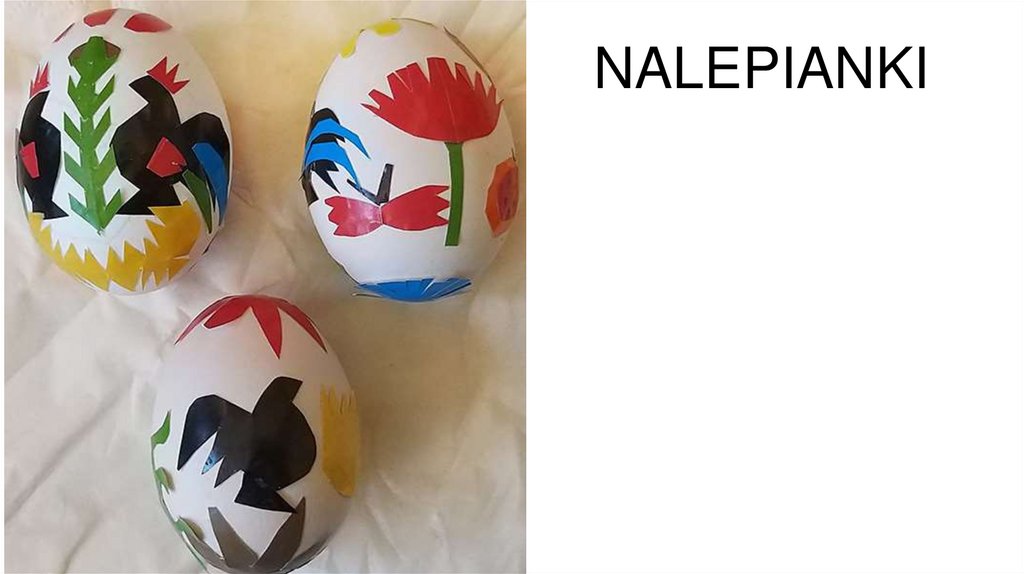

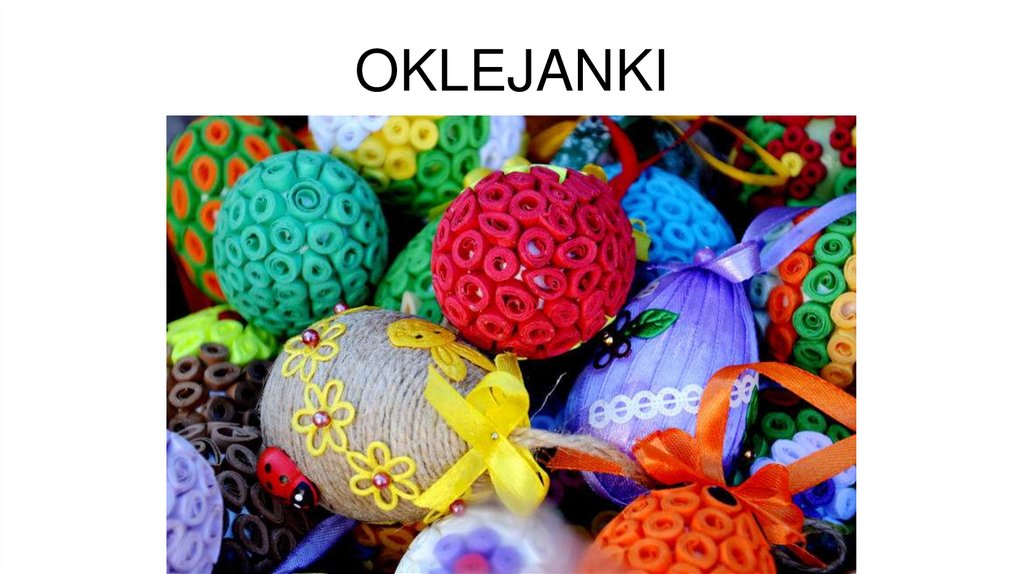

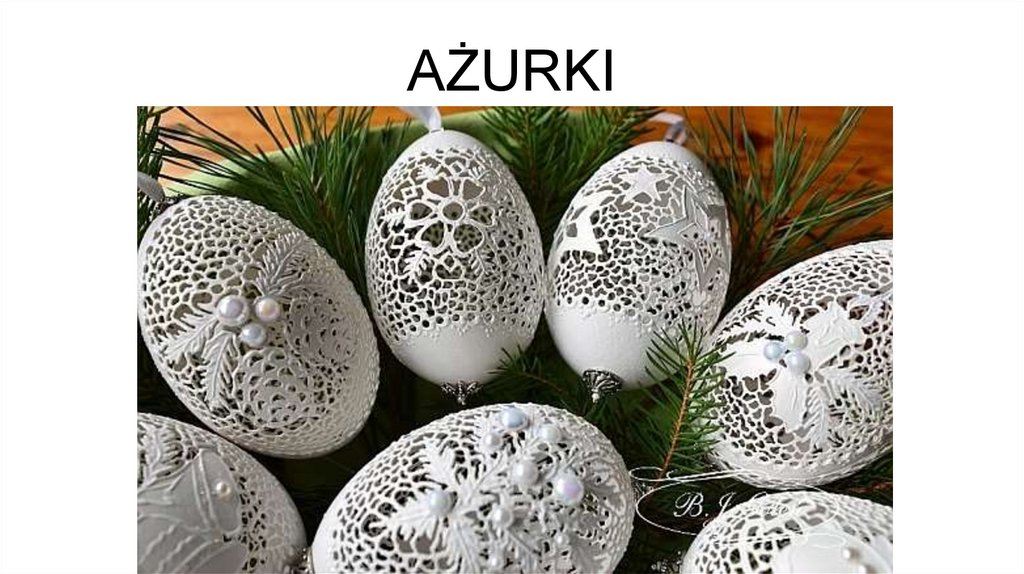
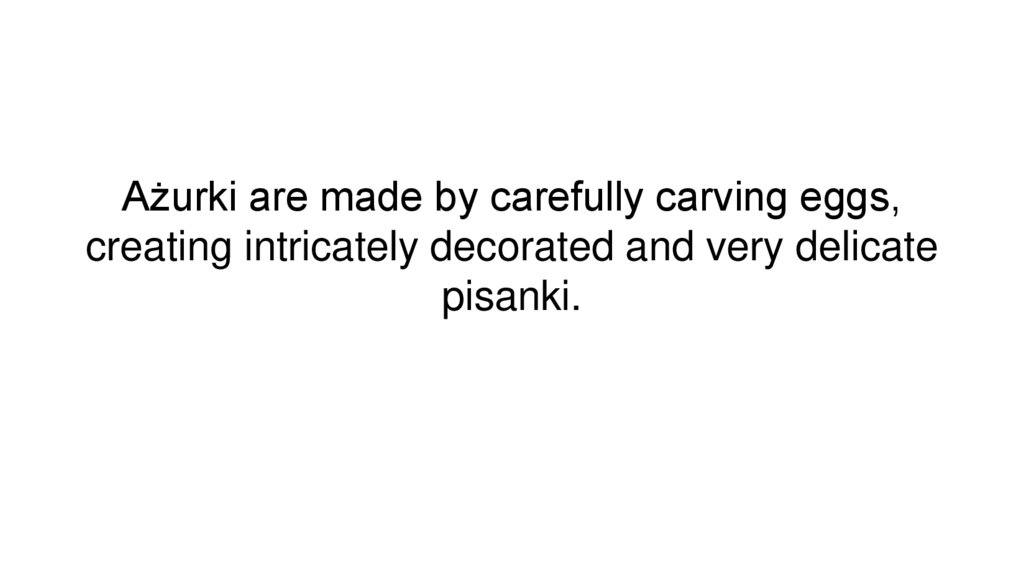
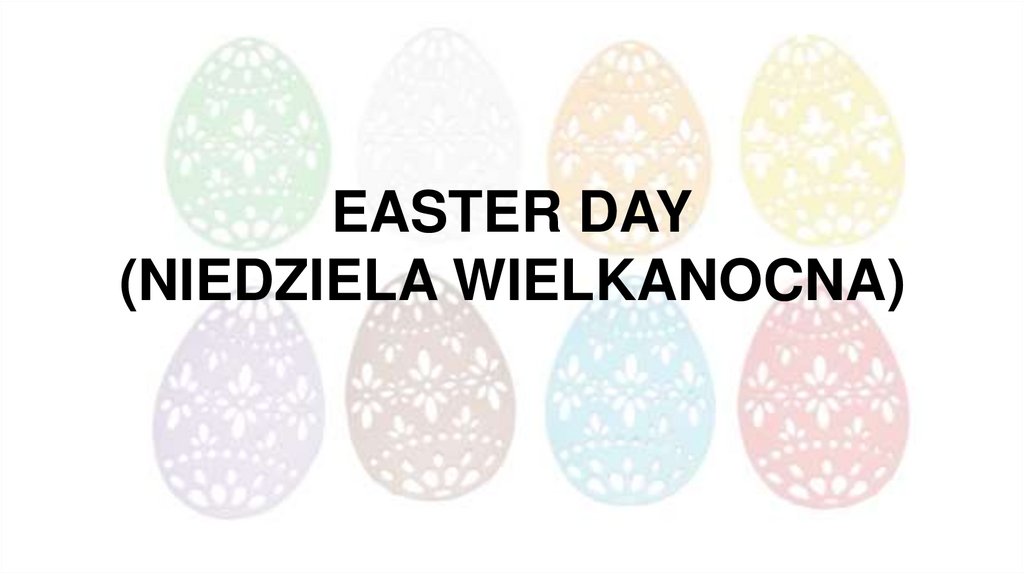
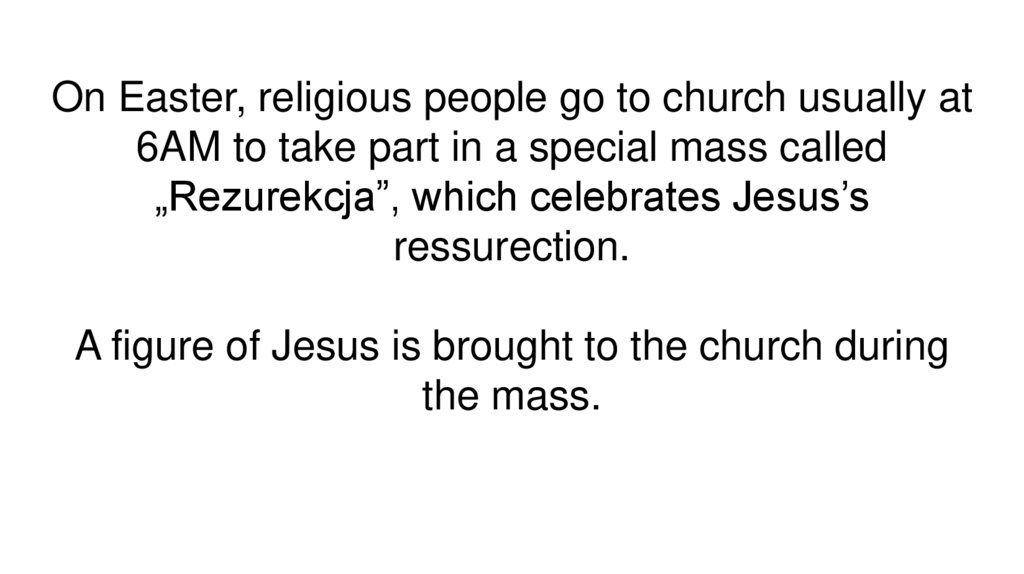

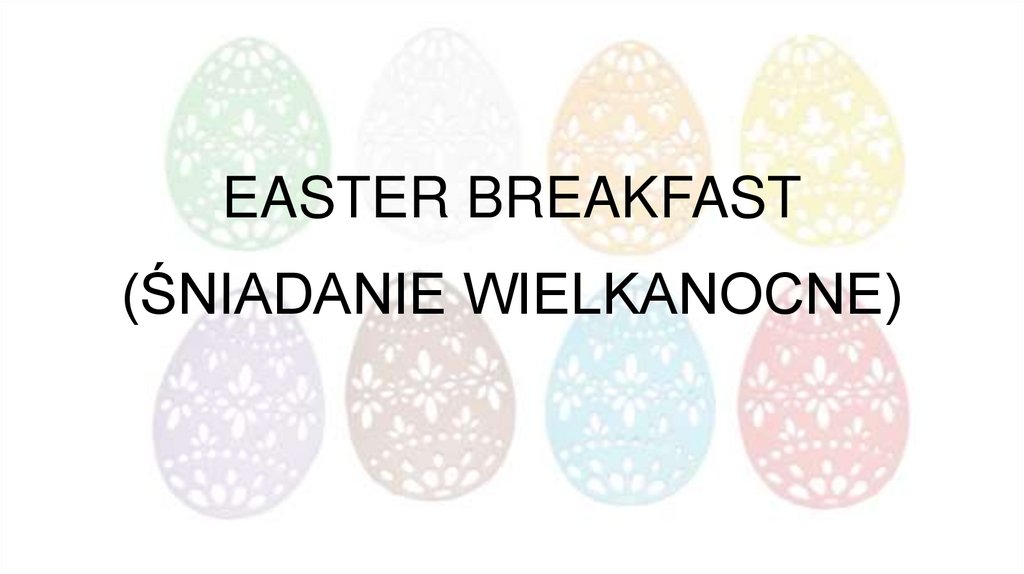
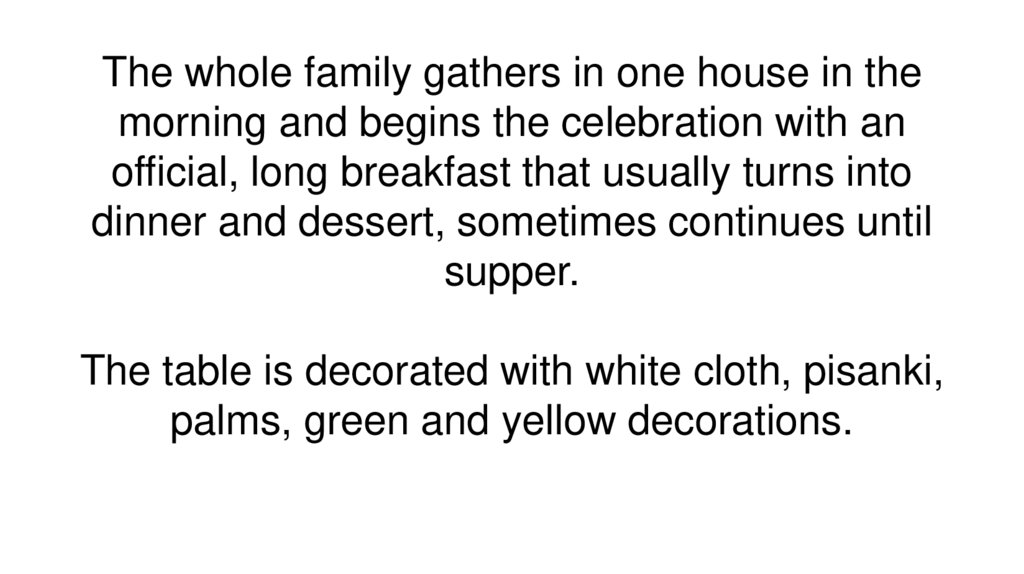
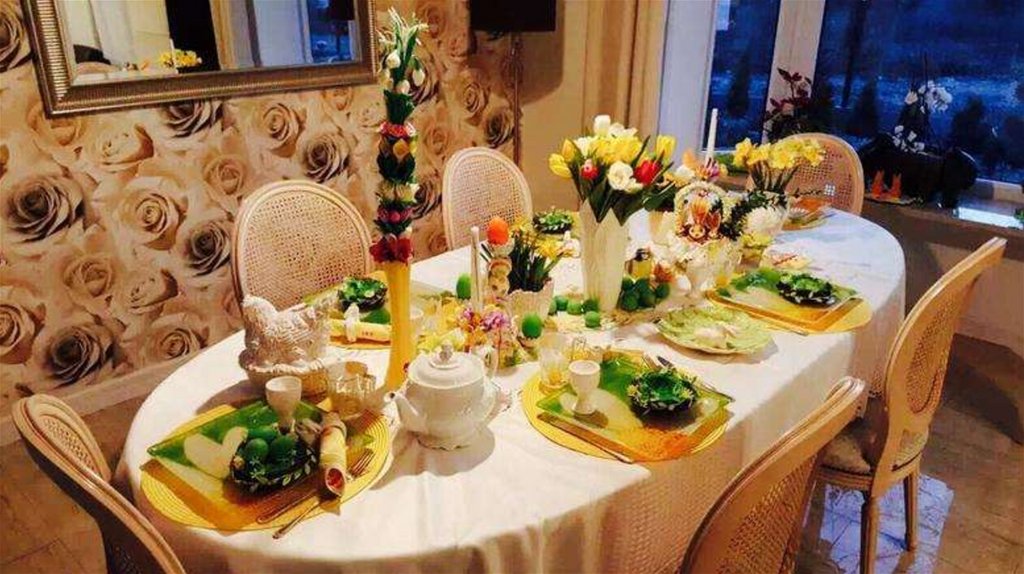
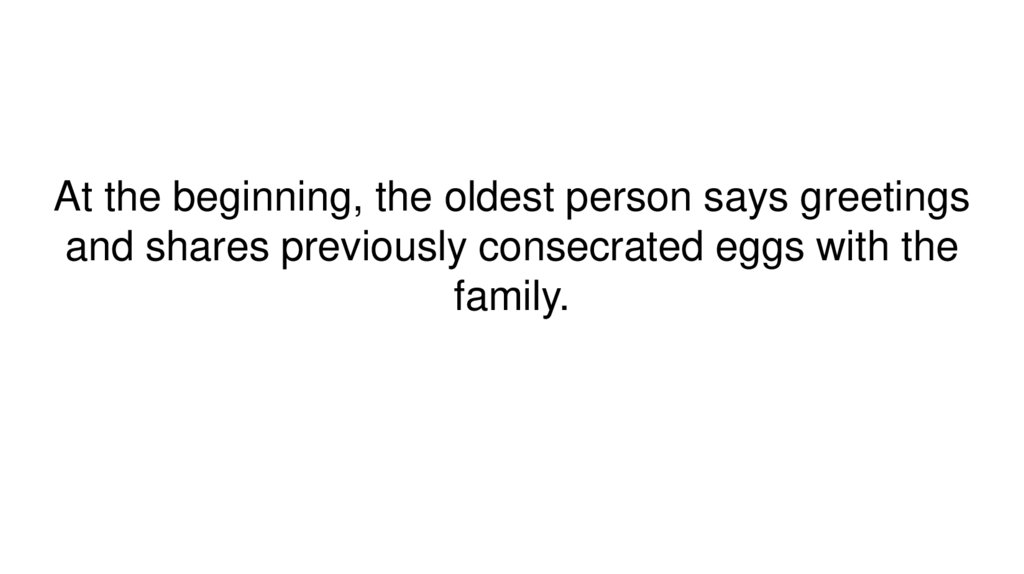
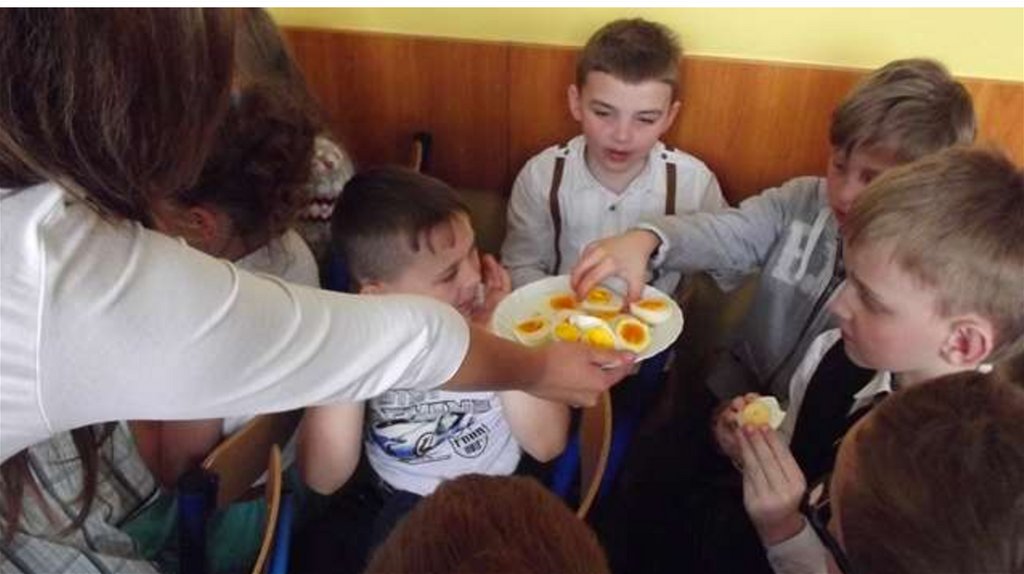
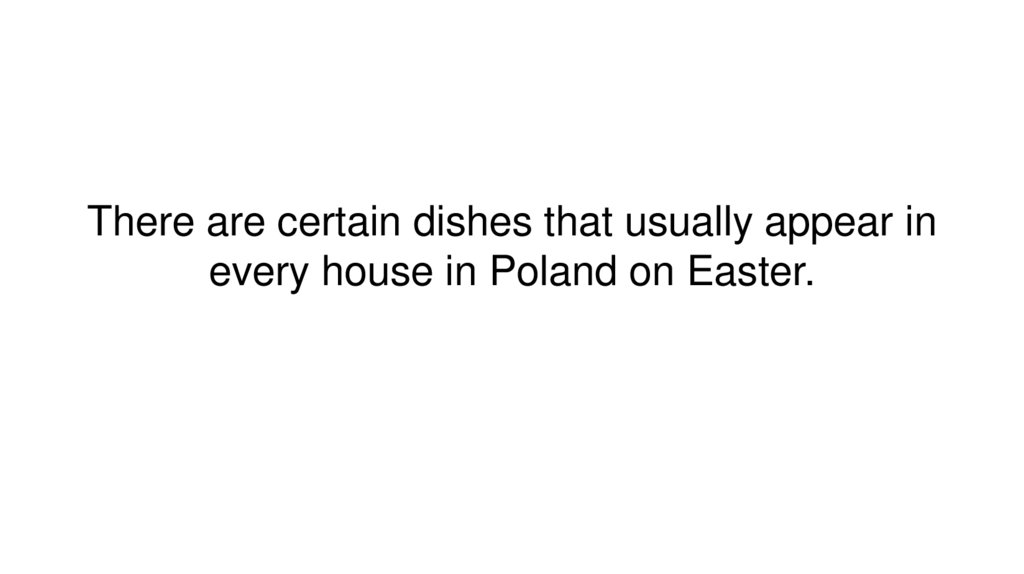
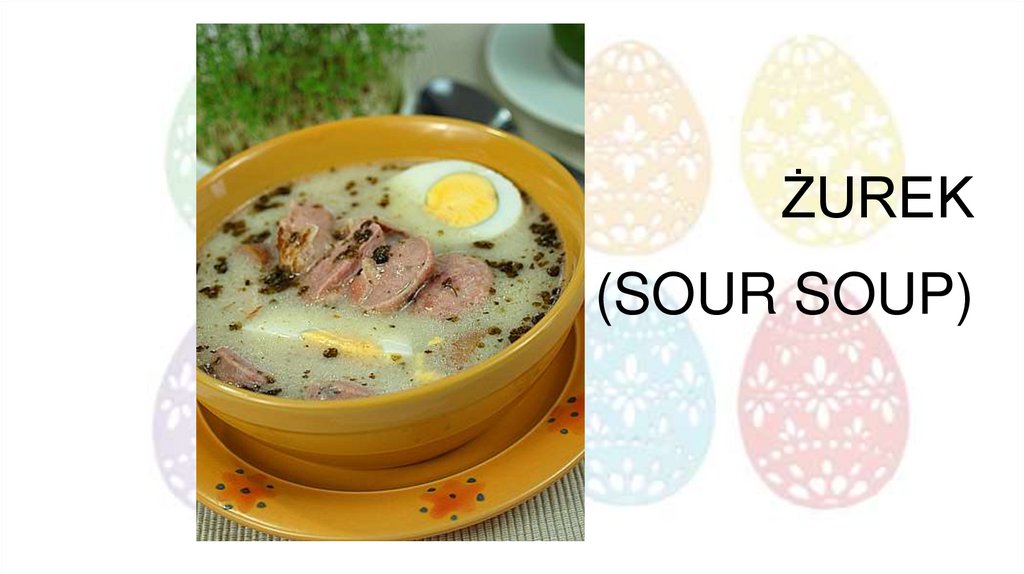
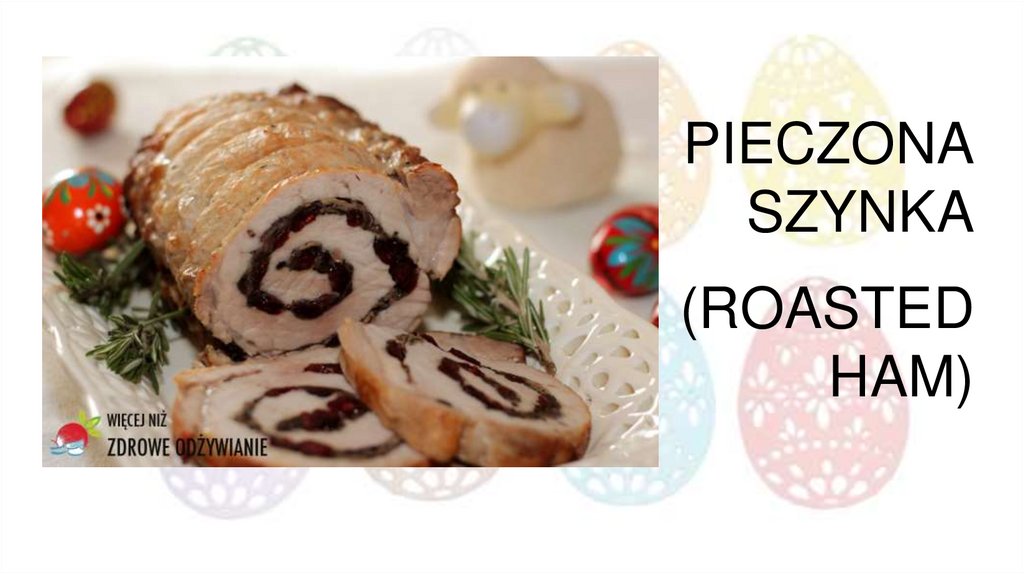
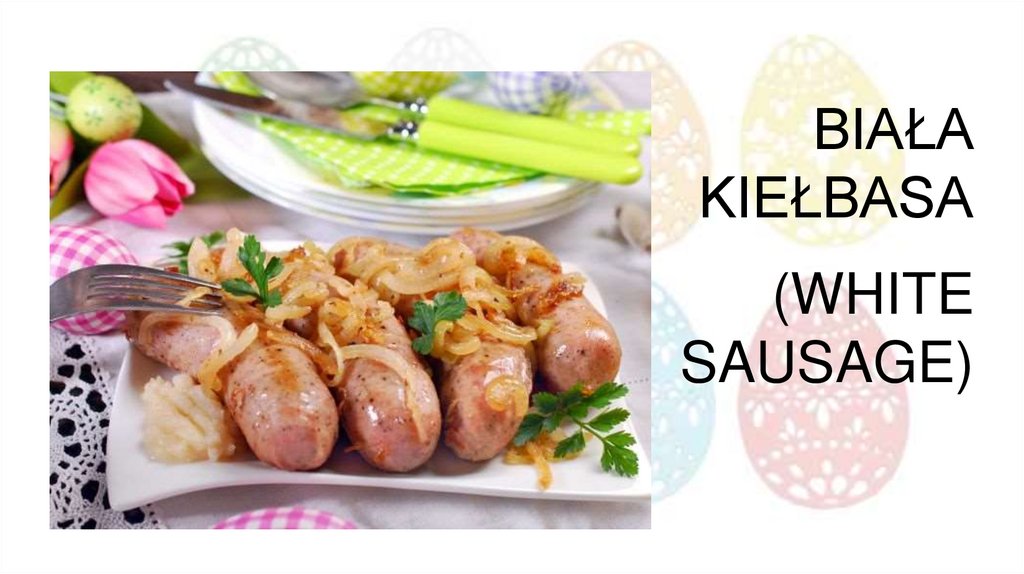
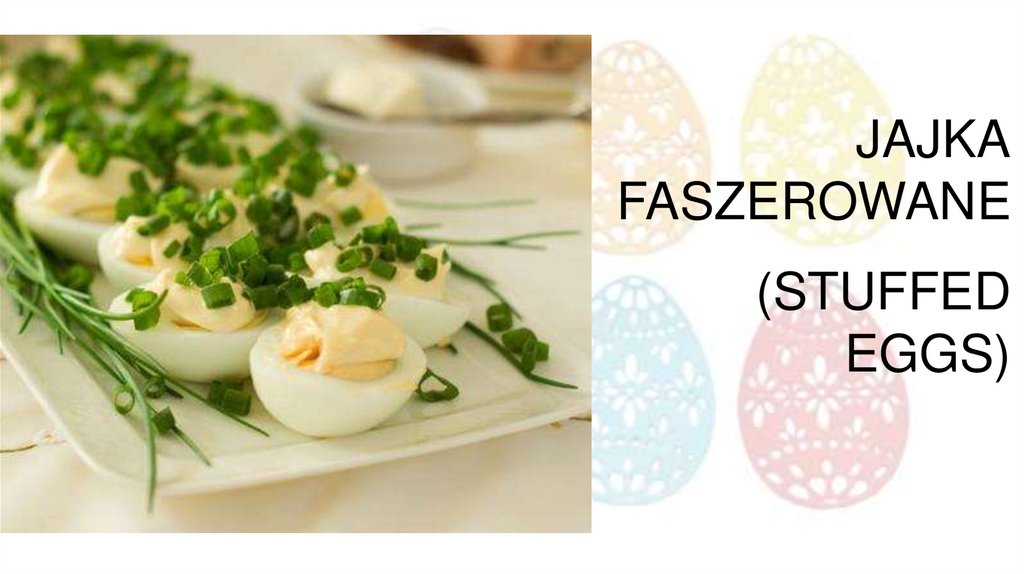

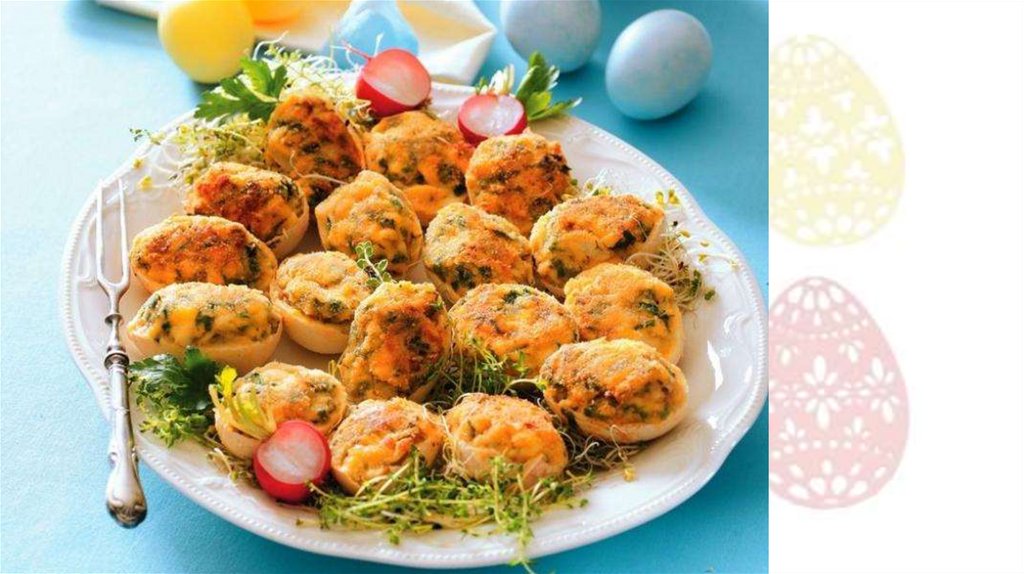
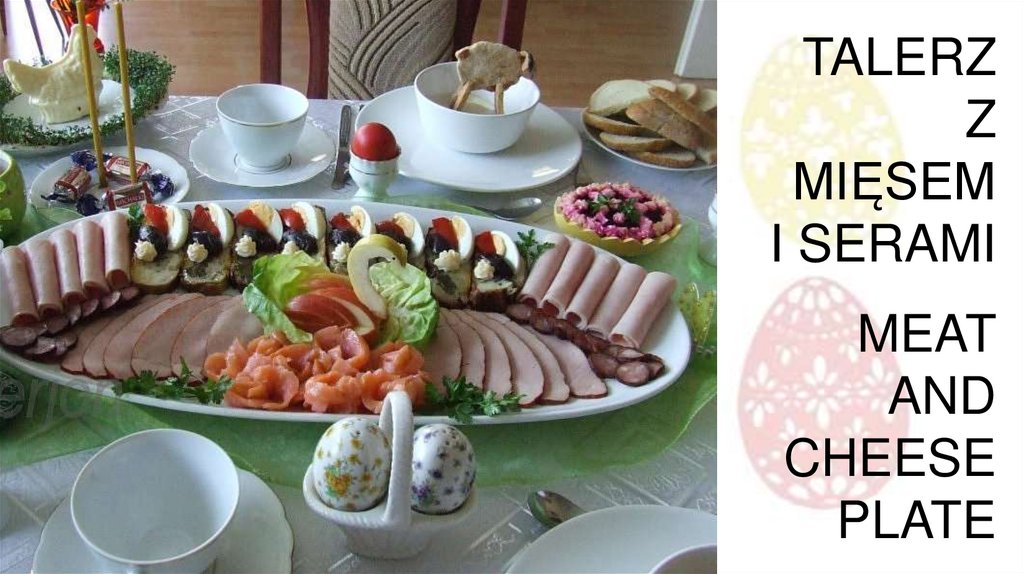
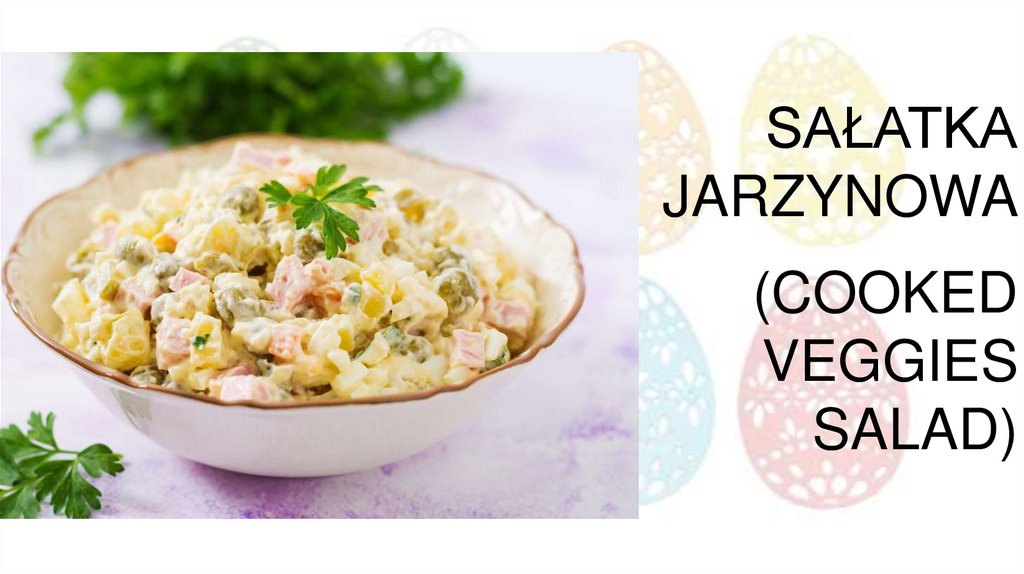
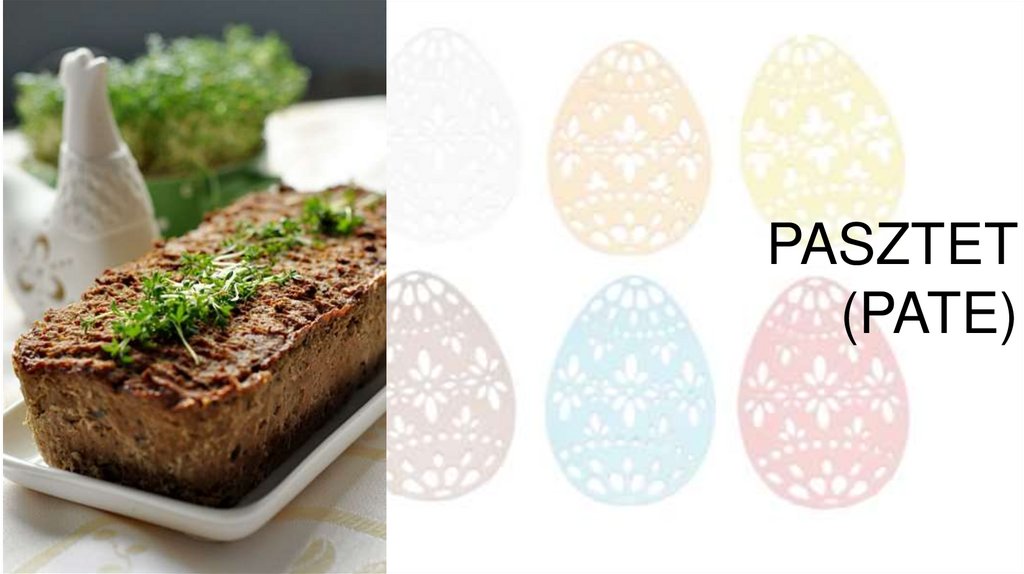
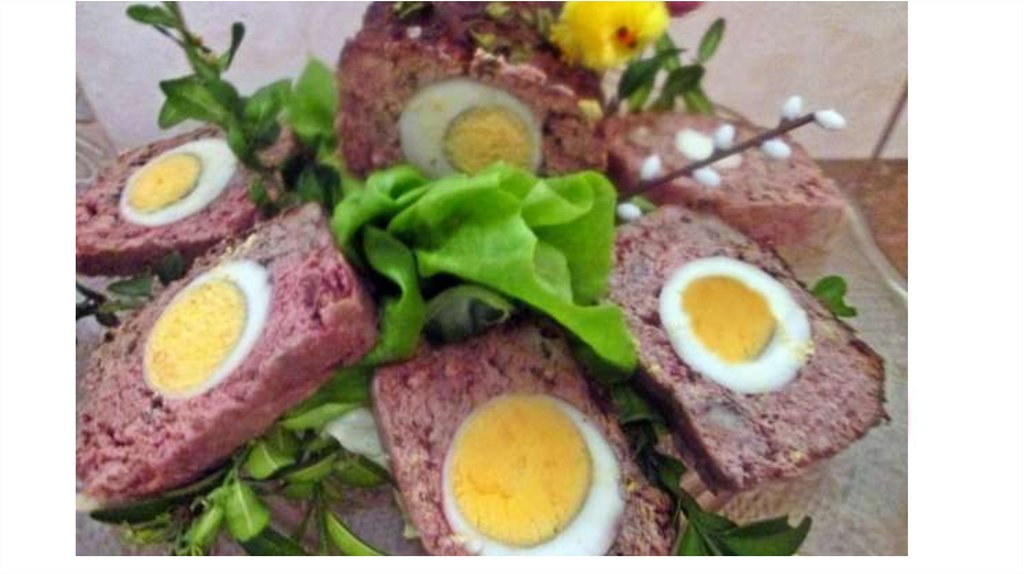
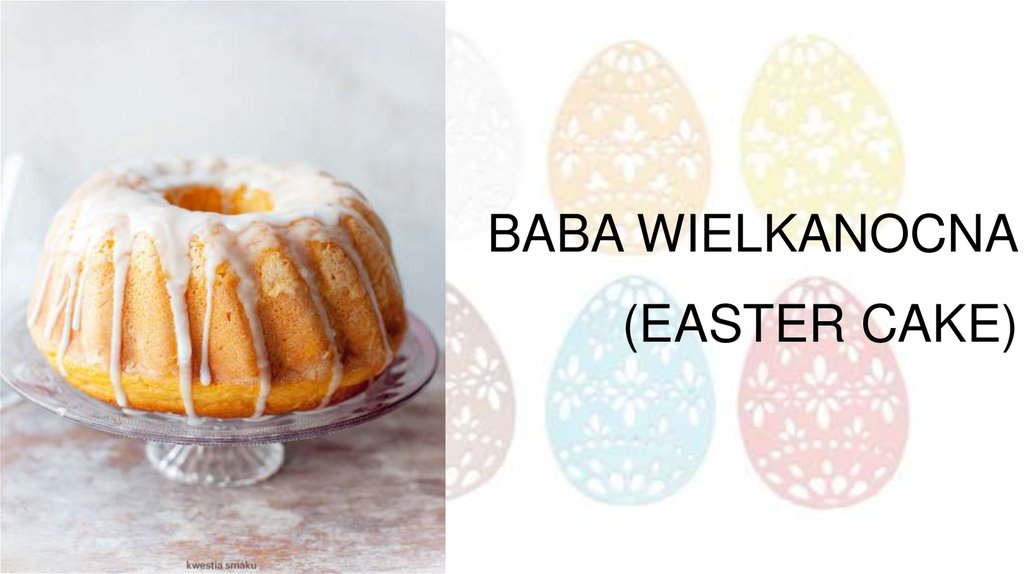
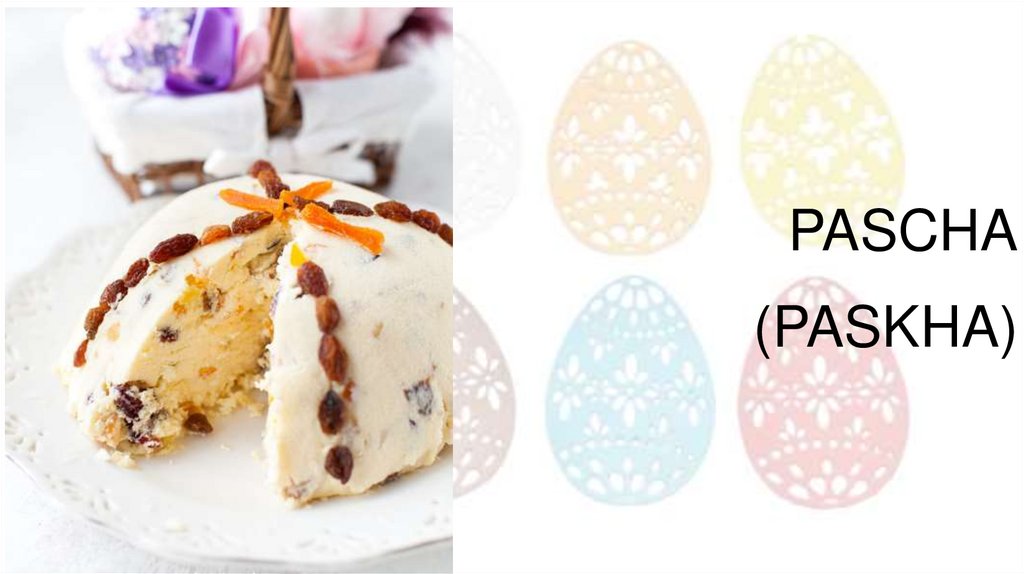
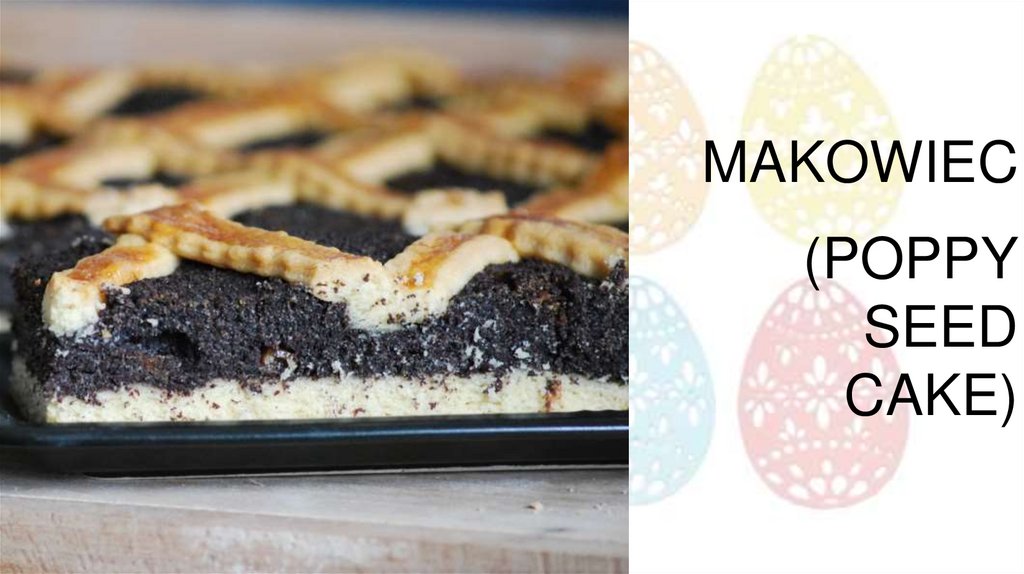
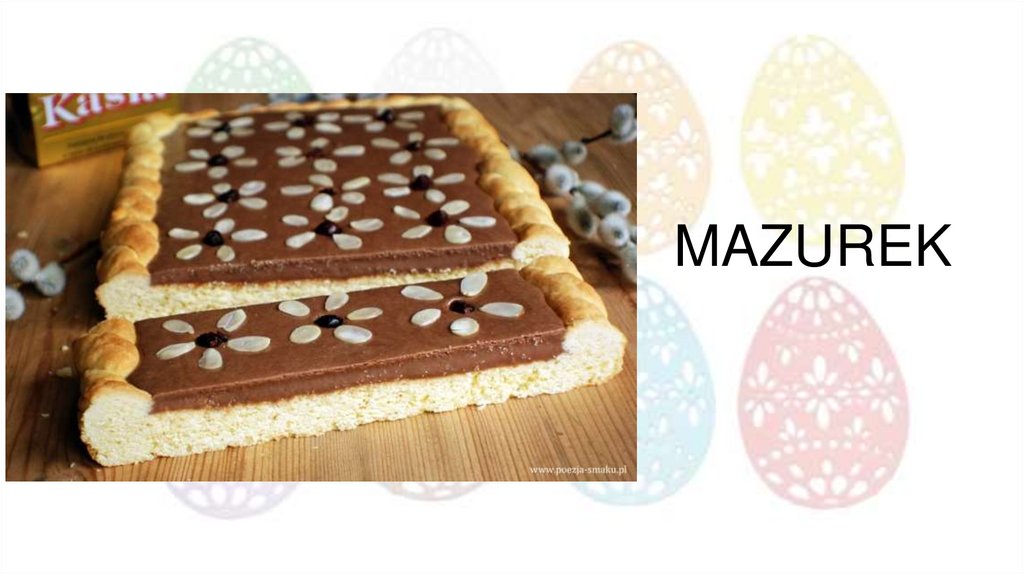
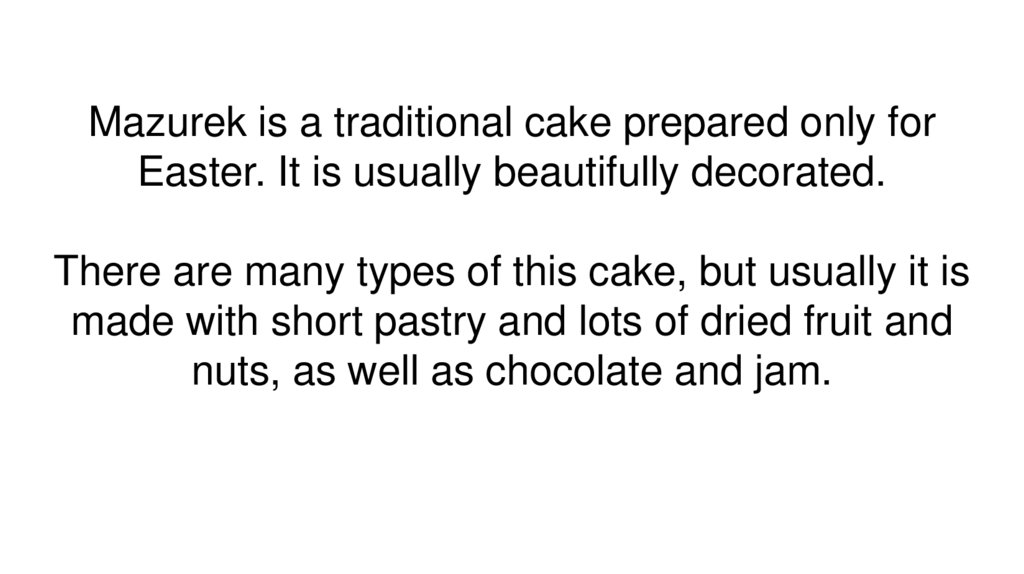
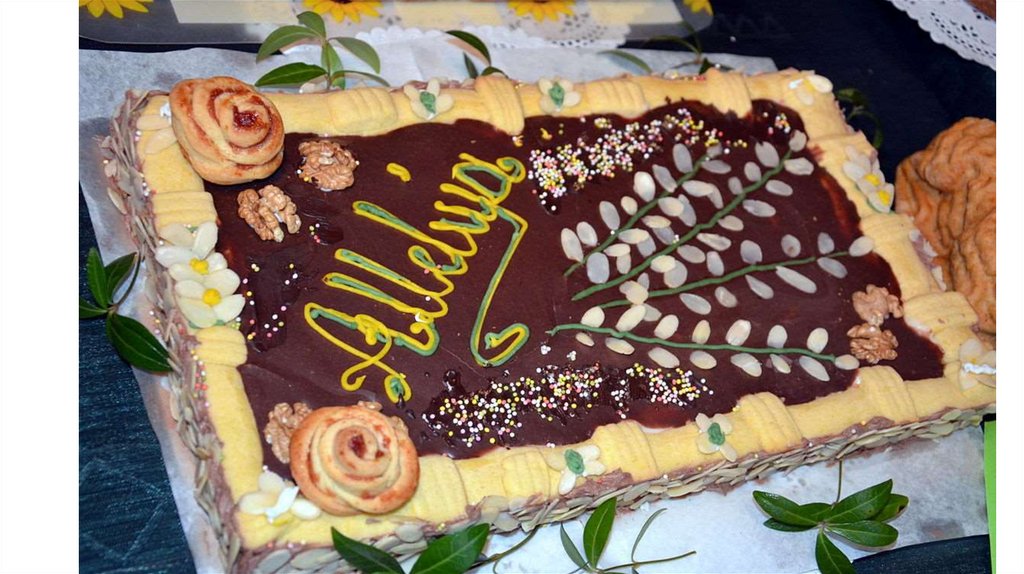
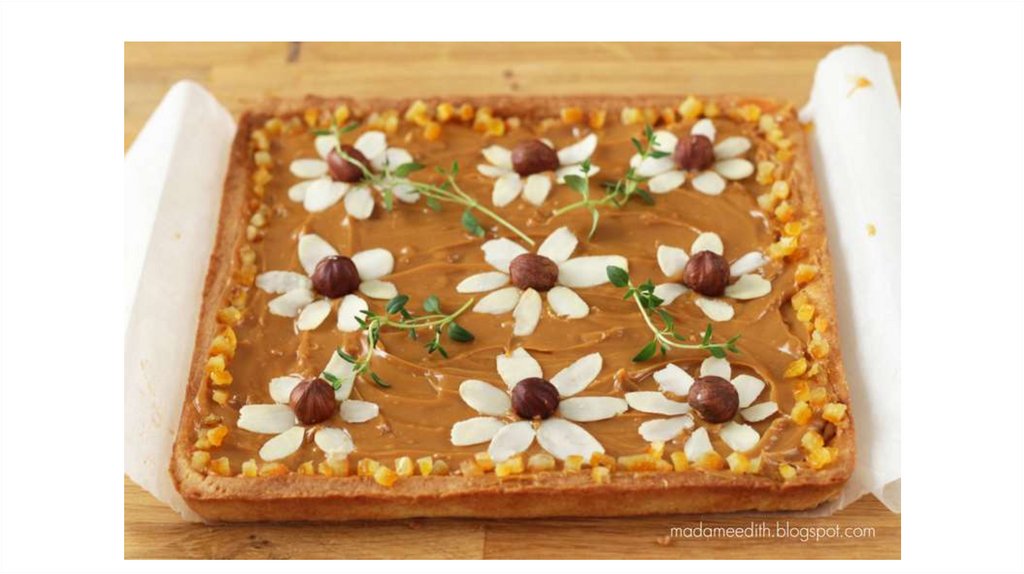
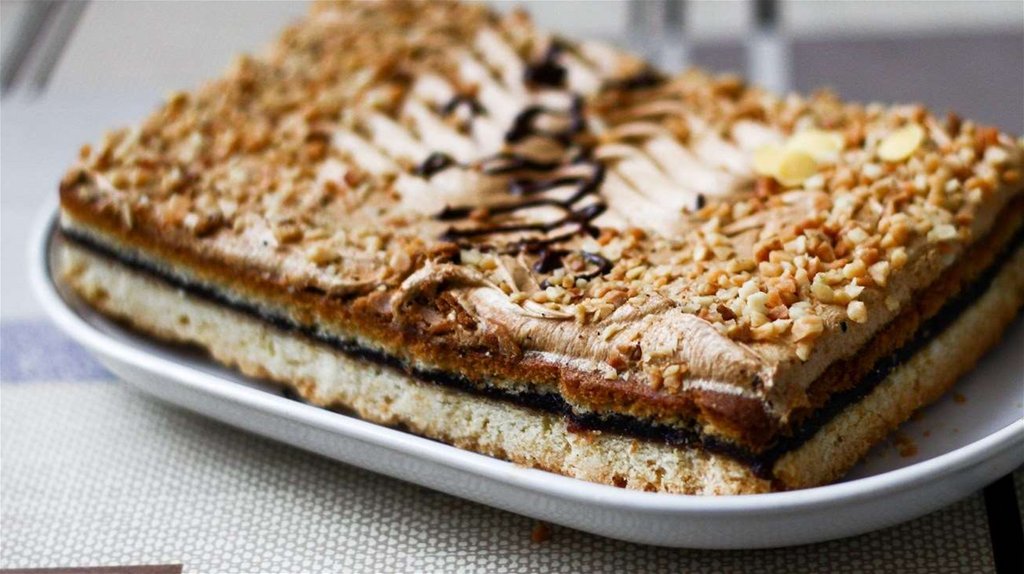
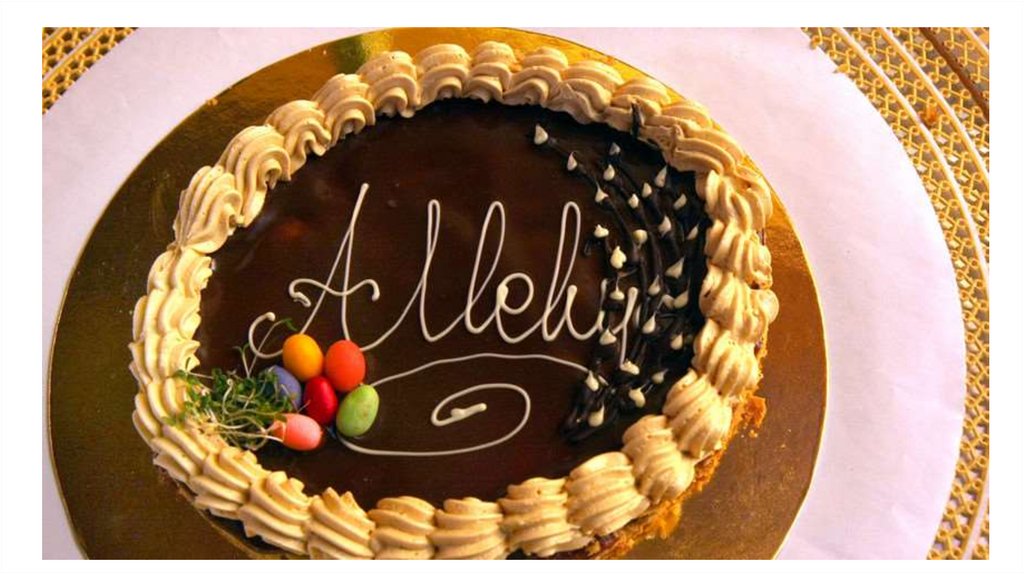

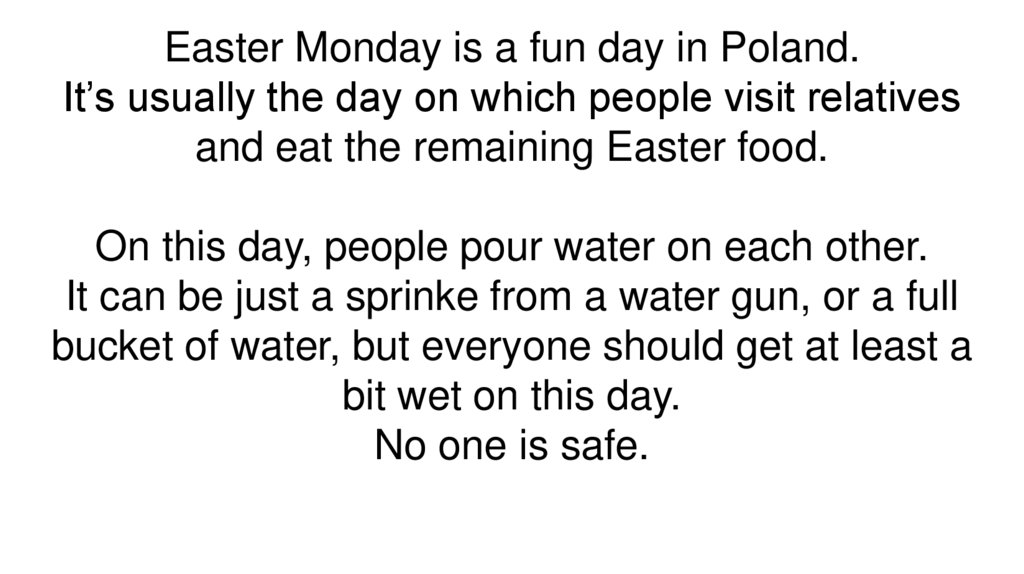
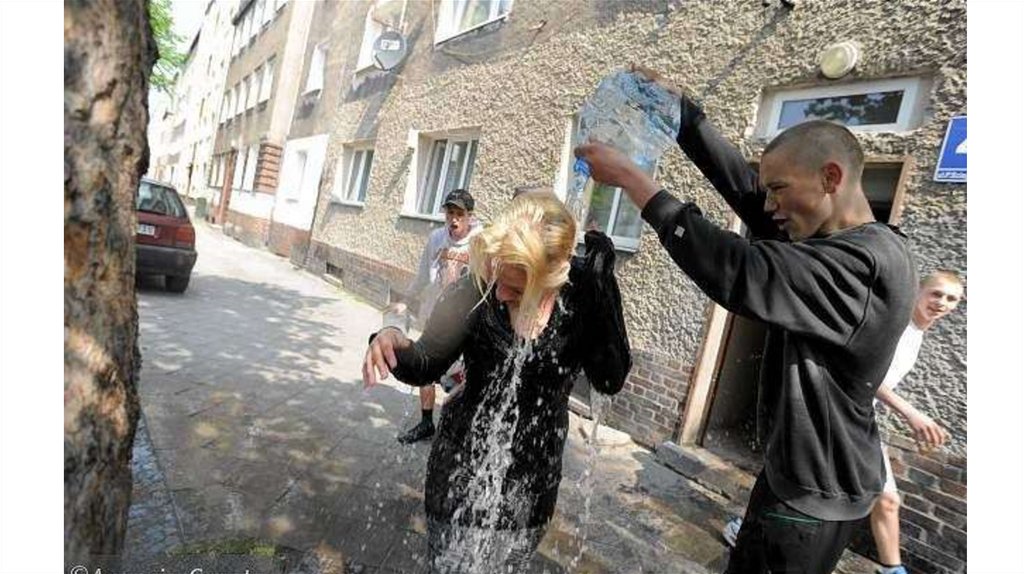
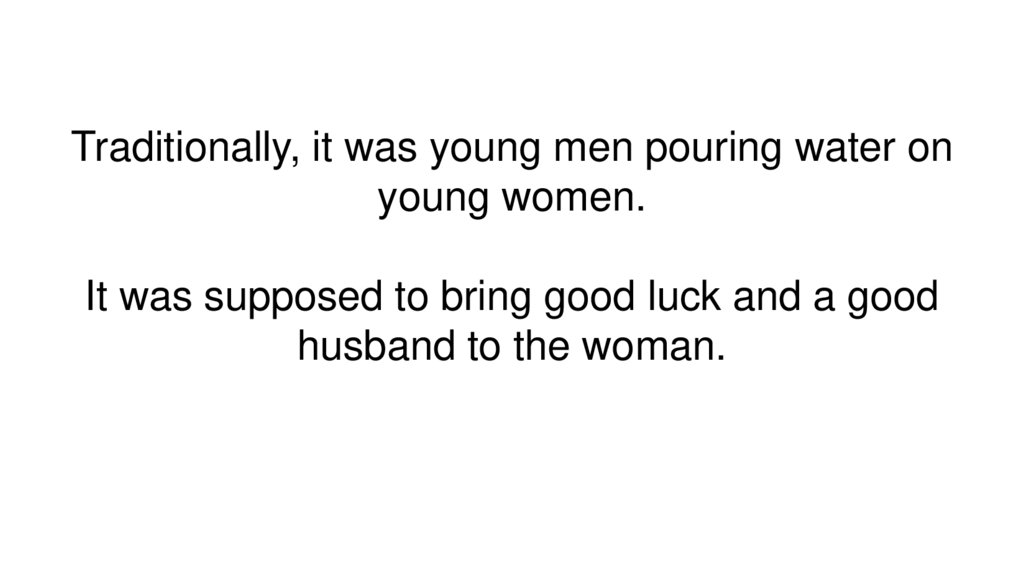
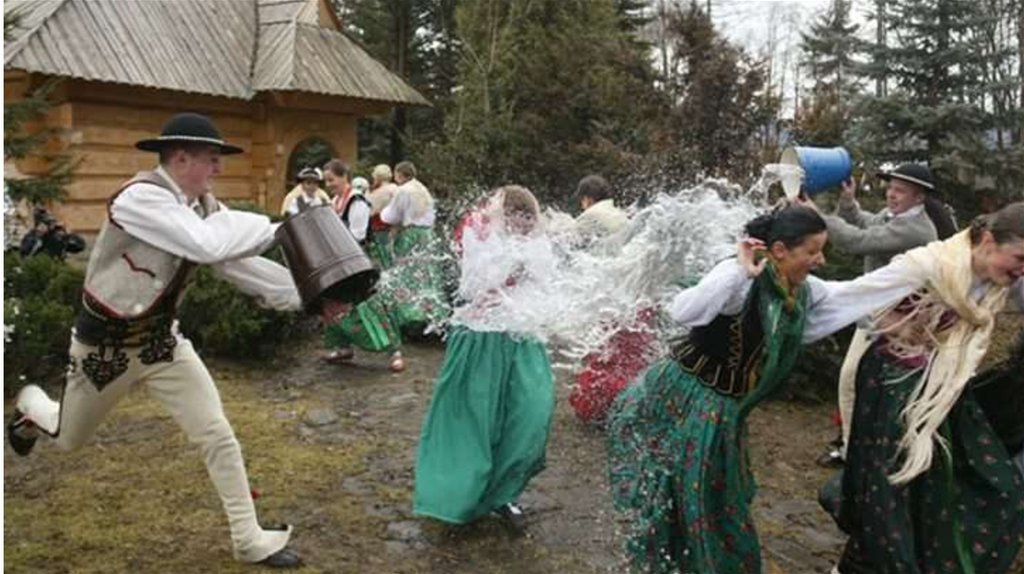
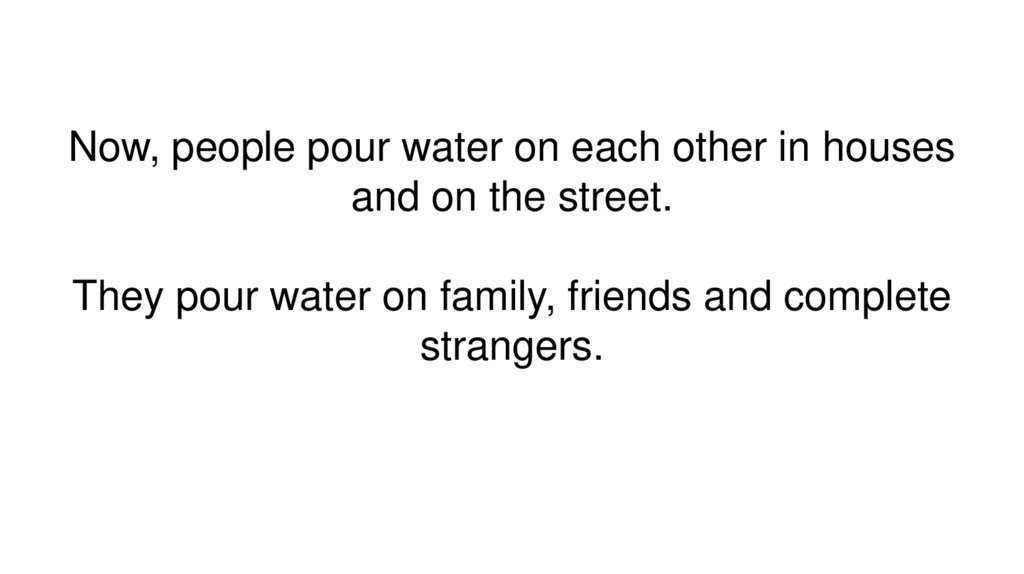
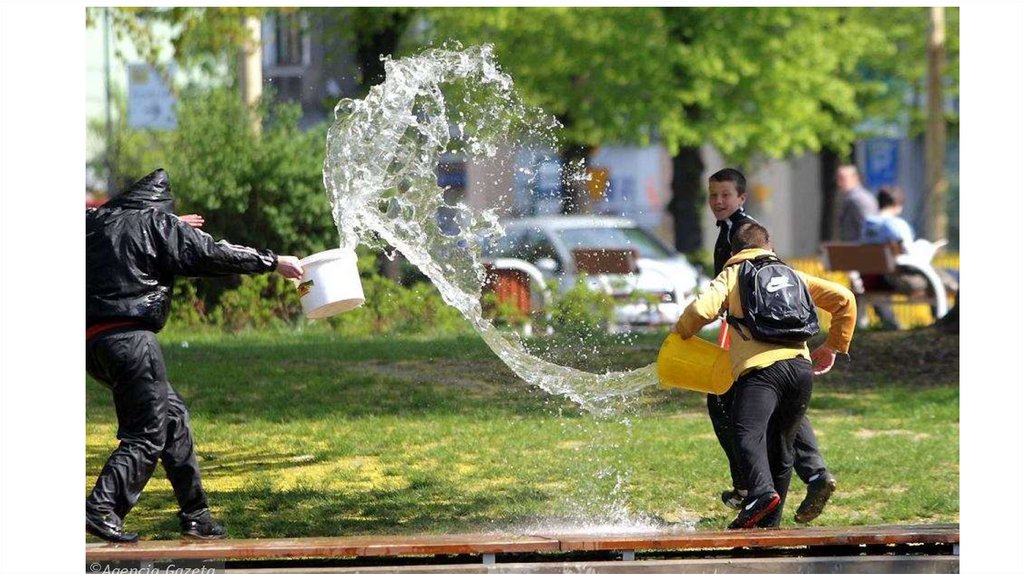
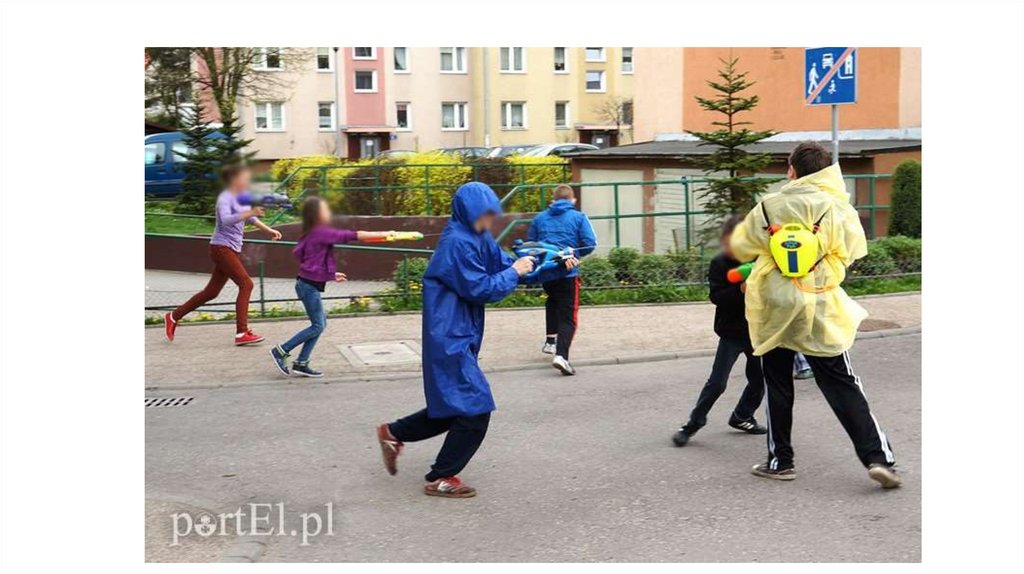
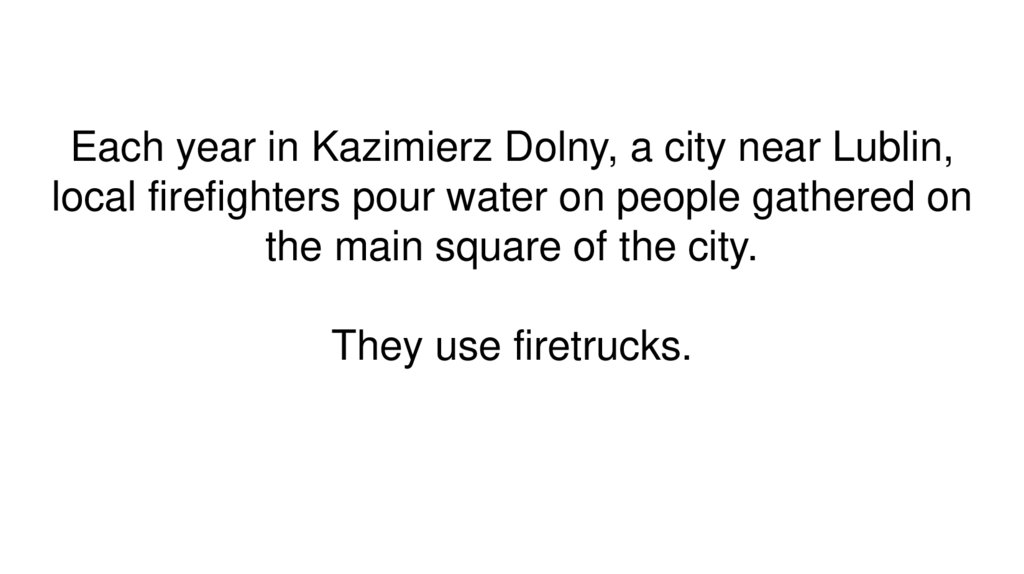
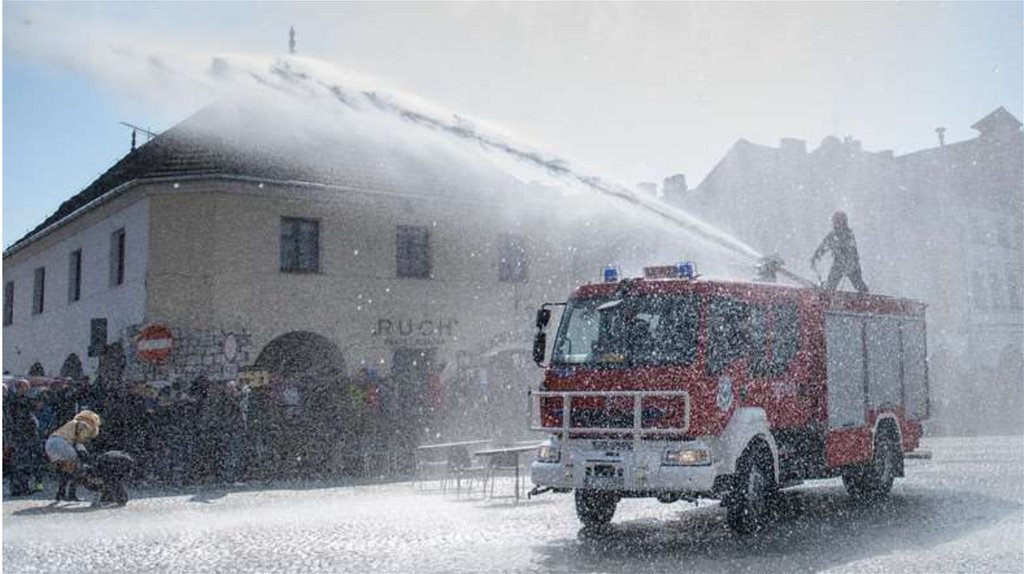
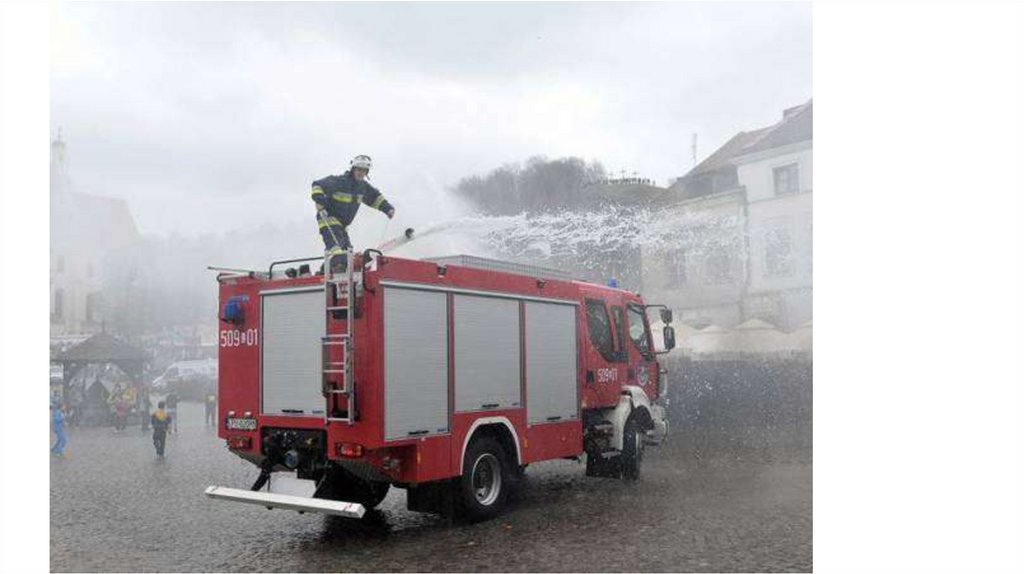
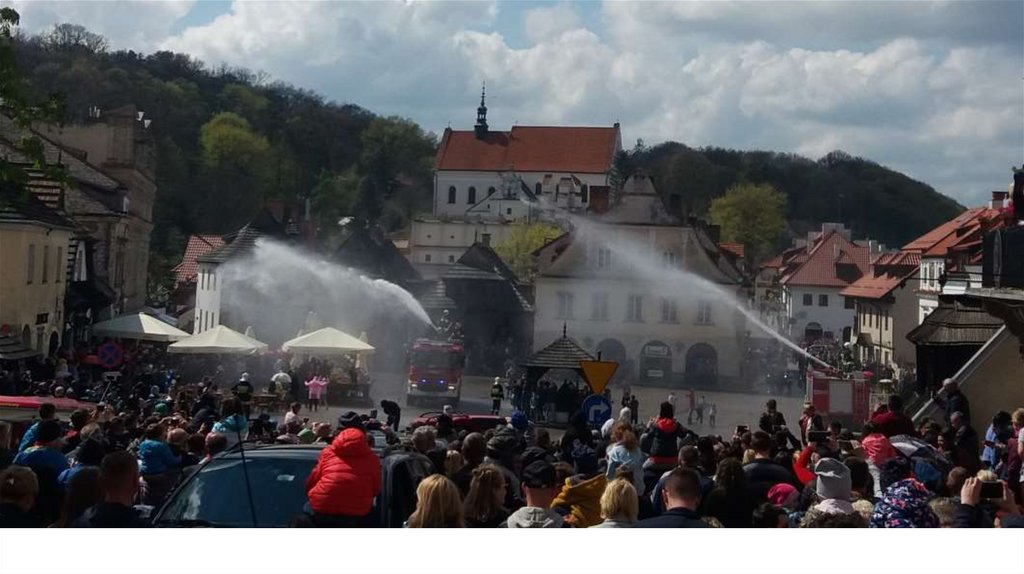
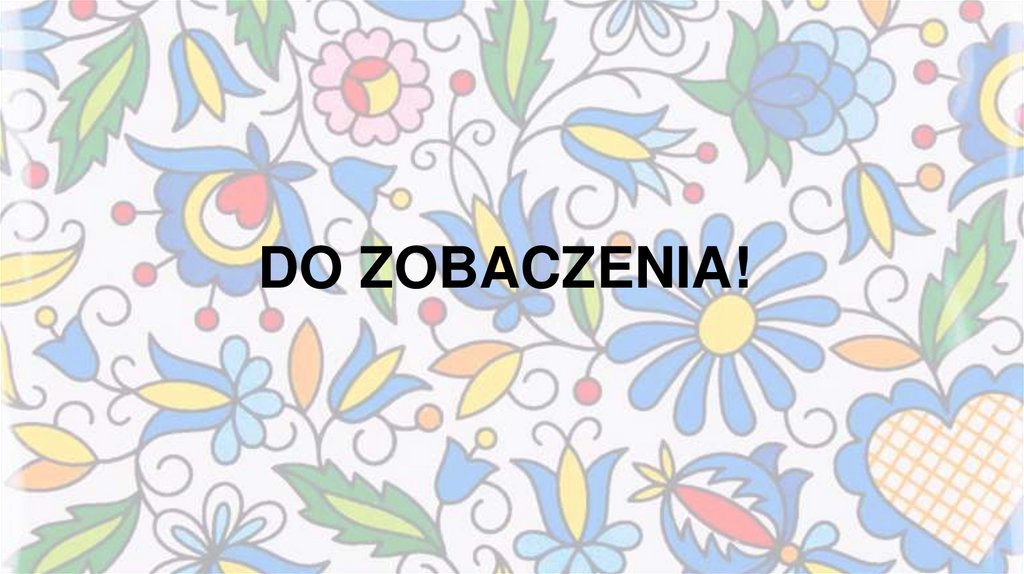
 lingvistics
lingvistics








